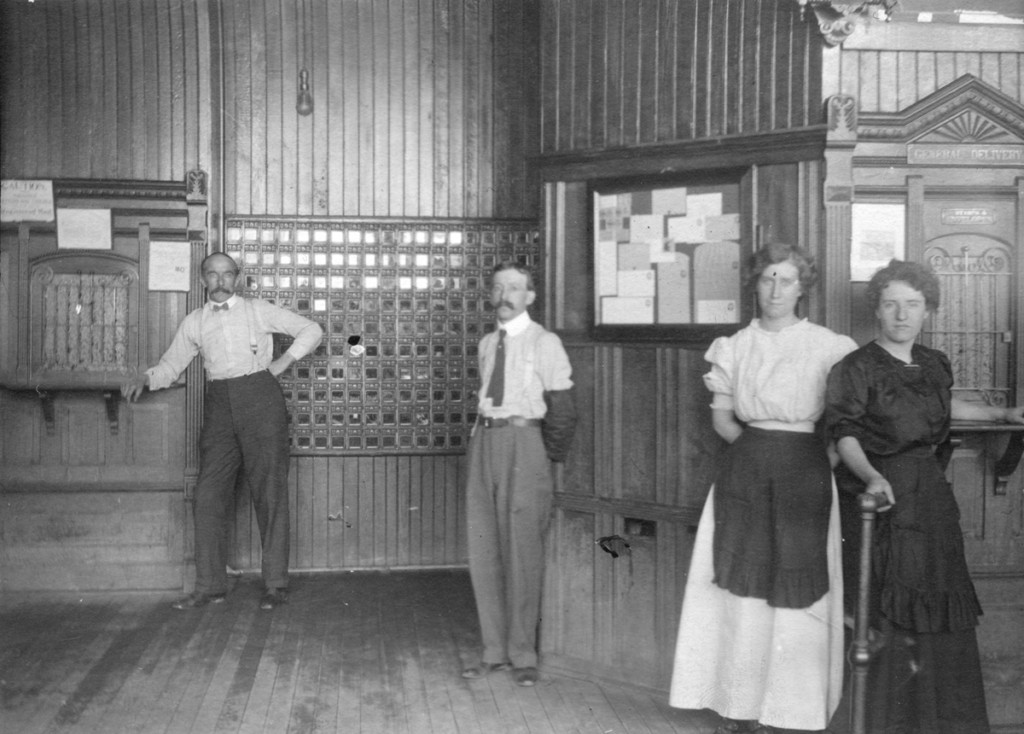March has been designated Women’s History Month since 1987. This month’s series of “Way We Were” articles will celebrate the many women who helped shape Park City’s history, from the miners’ wives involved in civic improvement organizations to the madams who ran “The Line,” to the women who kept the gears of the town well-oiled simply by going about their everyday lives. This week we look at Nellie Thiriot.
Nellie was born to George and Rhoda Snyder, pioneering settlers in the Park City area, in 1862. She married Edmund Thiriot in 1880. The two had several children, but Edmund died just fourteen years later in 1894. In 1902, Nellie was appointed “postmistress” of the Park City post office, a civil service position that earned her a very respectable annual salary of $2,000.
The term postmaster is used for the head of an individual post office. Between 1836 and 1971, postmasters, including Nellie, were appointed to the role by the President with the approval of the Senate. A postmaster’s job includes the distribution and management of all mail and carrier routes, and supervision of all post office employees, including clerks and letter carriers. Female postmasters have served in North America since the days of British colonization. The first woman postmaster after the Revolutionary War was Mary Katherine Goddard, who served in Baltimore until 1789. Other early women include Sarah Crow in Hertford, North Carolina, and Elizabeth Creswell in Charlestown, Maryland.

Credit: Park City Historical Society and Museum, Thomas F. Hansen Collection
Despite these early pioneers, women did not escape gender prejudice and were largely underappreciated in their positions. An act passed in Congress in 1810 refers to postmasters using only male gender pronouns, a fact that many opponents to women in the workplace used when fighting female appointments. Some claimed that because the act did not specifically say women could be hired, hiring them was illegal. Others believed women were well-suited to the position, not necessarily on their own merit, but because “no part of the Government’s work comes more in contact with the home and family than the postal service.”
An argument about female postmasters raged for decades, as shown by vitriol published in the New York Times nearly one hundred years later in 1902, the same year Nellie Thiriot stepped into the position here in Park City. “Every time a woman is appointed,” the article claimed, “she lessens the chance of marriage for herself.” It continued, “men make far better clerks, they complain less, do more work, and work overtime if need be without grumbling.”
Luckily for Nellie Thiriot, Parkites did not publicly share in this opinion. She was well-respected by her friends and neighbors here in town. As the Park Record reported the day she was appointed, Senator Kearns endorsed her for the position and “nearly all the business men of the Park signed the petition for her appointment.” She was “deserving in her good fortune and is undoubtedly justified for the position.” The Record expected her to be “kept busy…receiving congratulations.”